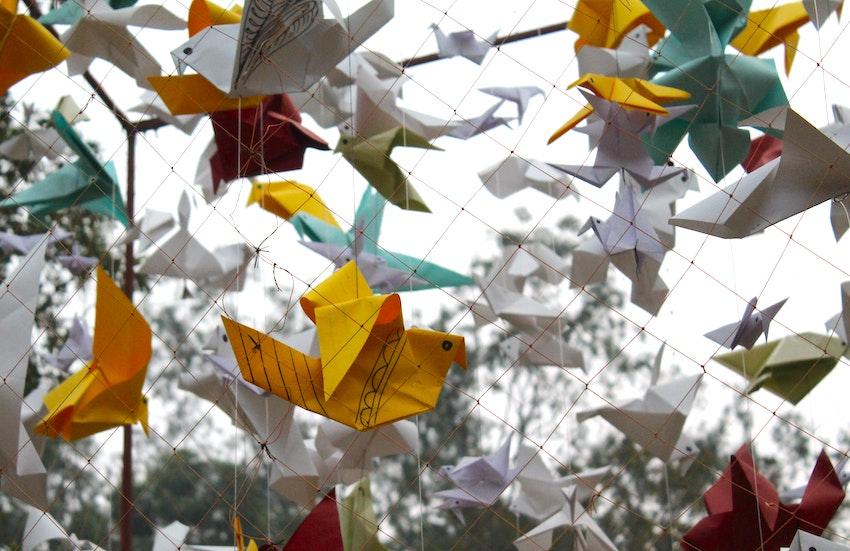Quarantine Hobbies That Reduce Stress and Anxiety
Published: Aug 11, 2020

As Covid-19 continues to wreak havoc across the world, self-quarantining can’t be stressed enough. We’re all eager to put the virus behind us, and staying home is among the best ways to ensure Covid-19 doesn’t spread further. However, staying at home isn’t easy—and can have a detrimental effect on your mental health. The good news is there are tried and true ways that help reduce stress and anxiety. And one of these is taking up a hobby—which even the Mayo Clinic recommends.
If you don’t know where to begin when it comes to hobbies, here are five to consider starting—either after your remote work is done for the day or during a work break.
1. Recording your own music
If you’ve ever dreamed of writing and recording your own music, there’s no better time to do that than now. Along with the great satisfaction it can bring you, the upsides of recording your own music include: the technology offered today makes it relatively easy to produce your own music, the technology is easy to secure, when you start creating your own music you’ll be so focused that you’ll forget all about Covid-19, and it could just give you a new marketable skill. The downsides are your budget will determine the technology you can afford, and it can take some time and money to get the right equipment.
For a complete setup, you’ll want the following items: a laptop or PC with at least 8GB of RAM and a Core i5 processor, a good microphone, a nice pair of headphones, an audio interface to convert analog signals from your microphone and instruments to digital signals, and software such as GarageBand to record, mix, edit, and produce.
Note that a simple setup like this can take you far—it’s not too different from the modest production setup that Billie Eilish and her brother Finneas O’Connell used to record Eilish’s first record, When We All Fall Asleep, Where Do We Go?
2. Creating your own curry powder (and curries)
Engaging in activities like cooking can take your mind off of Covid-19, thus reducing your anxiety. It can also make you more productive at work. And during quarantine, all of us have likely been spending as much time in the kitchen as we have in front of our computers. So, if you want to spice things up with your lunches, snacks, and dinners, consider some DIY curry powder. It could be just what you need to raise your meals to the next level.
Curry powder is easy to make, and the recipes are readily available online. Once you have your homemade powder, you can start experimenting with these excellent curry recipes. And if you start soon, you’ll be ready to unveil your new curry creating expertise at in-person dinner parties (remember those?) when Covid-19 is a thing of the past.
3. Beeswax candle making
Burning beeswax candles purifies the air, eliminating mold, dust, and odors. Beeswax candles don’t drip and they burn a long time, allowing you to enjoy their fragrances for hours. The result is a calming and relaxing effect, which is crucial during this time of quarantine.
You might make yourself some beeswax candles for everyday use while you work, for soaking in the bathtub (another stress and anxiety reliever), for gifting people (who wouldn’t love to receive one of these healing candles now?), or for selling to make some extra money. The supplies you need to make beeswax candles are easy to find, several kits are available on Amazon and Etsy, and here’s a good tutorial to guide you.
4. Paper folding
Origami is a good way to flex your creativity muscle and reduce stress during your stay at home. It’s also a good activity for the whole family or those in your quarantine bubble. While you fold and crease, your mind is focused, not unlike a meditation, and you get to bond with your loved ones. You can compete with each other (or just yourself), seeing who can take up the most complex origami projects or who can complete certain shapes the fastest.
A great thing about origami is you only need paper and a pair of scissors. You can check YouTube or other online sources for tutorial videos. Paper can be bought on specific origami sites or via Amazon.
Note that, in addition to relieving stress, origami has been shown to boost mindfulness and improve your ability to focus. Which, of course, can help improve your productivity at work.
5. Speaking Mandarin
Learning a second (or third or fourth) language has many benefits. In addition to giving you something other than Covid-19 to focus on, it can increase your test-taking skills and boost your ability to focus. As for which language to learn, Mandarin is a good place to start, as it’s one of the most widely spoken languages in the world. And once Covid-19 is behind us and we’re able to travel again, having a working knowledge of Mandarin can boost your career, helping you bridge the language and cultural barrier with Mandarin-speaking clients and colleagues.
In addition, learning to write and speak Mandarin exercises your brain by bringing out your artistic skills. And if you’ve been thinking that learning Mandarin is hard, you’ll feel incredibly accomplished once you do learn it. To start, you can research online for the best Mandarin language apps.
And if you already know Mandarin, or would like to learn a different language, check out these apps, which offer many other languages and courses.
Melissa Bethany enjoys exercising and taking care of her body. Her hobbies include biking and cycling, and her favorite things to do are reading and writing.
